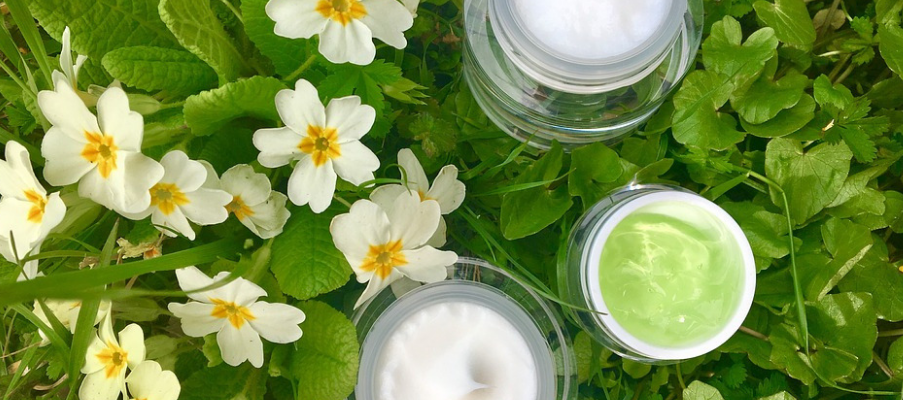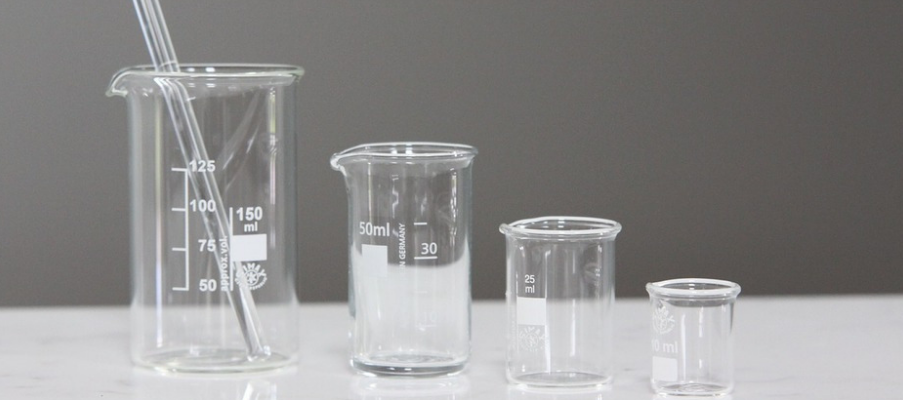Does it really matter whether your skin care ingredients are organic compounds, or lab created synthetics?
For some the thought of using a synthetic ingredient can be almost terrifying. Usually due to a blog post somewhere about the dangers of putting (the latest vilified ingredient) on your skin. On the other hand there are a whole group of people that feel organics can't deliver the same level of results that we can achieve with many synthetic compounds. So who's right?
Let's get right to the point. There are GOOD and BAD in BOTH categories, whether organic or synthetic (and they are both "chemicals" by the way). What's really important is that the ingredients you choose are non-toxic, able to provide an actual benefit to the health of your skin, and don't have a downside or negative side effect. With such a long list we won't get into the particulars, but here's a few thoughts on the topic.

When formulating our own products, we will often purchase a variety of skin care to conduct market research. It wasn't uncommon for the organic products to already have mold on the inside when they arrived. What benefit will a moldy product have on your skin? I'm not interested in finding out, but I guarantee it isn't a more youthful complexion.
There's also the issue of inflammation and irritation which we often see with those using certain organic essential oils, especially citrus oils (which also raise photo-toxicity issues), clove, nutmeg, cayenne pepper and cinnamon.
One of the most problematic synthetic ingredients is perfume or fragrance. The exact formula is usually a trade secret and can represent any number of over 3000 chemicals, many of which may be endocrine disruptors, carcinogens and irritants.
To consider for both categories...
- Large molecules can't penetrate into the skin whether they are organic or synthetic and therefore cannot provide much of a benefit.
- Prolonged inflammation is damaging to the skin and so we want to limit this. It may be caused from using the wrong organics or synthetics.
Clay is an organic compound, but it's not suitable for dry or dehydrated skin types. Sea salt, charcoal powder, unbuffered vitamin C...there's a long list of things we wouldn't recommend putting on your skin (regardless of what some of the marketing tells you), and they may be organic or synthetic. If an organic compound hasn't been purified or processed properly it may contain heavy metals and other toxins as well.
We've had many people have come through our doors with clogged pores and blackheads due to the miracle hydrator...coconut oil. Not every ingredient is suitable for all skin types and conditions.

The truth is mother nature doesn't always provide the best options for keeping our skin young and healthy looking. Science has come a long way in creating compounds that are very effective at safely providing a particular benefit to the skin. Dollar for dollar, synthetics will generally deliver the greatest result in the shortest amount of time.
Ingredients such as Hyaluronic Acid, many types of Peptides and for some Retinol (to name a few) are considered "Super Heroes" in the skin care world. And the great thing is they are very safe.
To wrap it up...
It's a huge topic, and we could probably write a really thick book on the subject. Just remember, There are good and bad organic compounds and good and bad synthetic ingredients. The main focus should be on choosing the helpful compounds while avoiding the over-hyped, non productive or harmful ingredients. If in doubt, spend some time to educate yourself about what's going on your skin.
If you don't understand what you're putting on your skin we can help. At Glow Luxe we offer product consultations to take the mystery of your home program.
Looking for an effective and complete anti-aging serum? The best of both worlds can be found in one of our favourites:
